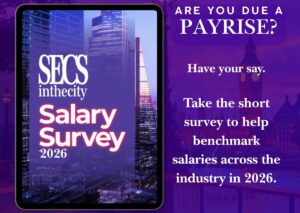Looking for the right candidate can be difficult, with people from all different background, levels of education and experience fighting it out to be your next employee. Vincenzo Ferrara looks into the argument about at who you should hire and who you should avoid.
British businesses are at risk of losing out on the greatest candidates, as many stick to recruiting using traditional evaluation criteria that takes into account education rather than experience and potential.
According to a survey by Cornerstone OnDemand and IDC, who looked over 1,900 European HR, IT and business managers found that meeting job requirements (57 per cent) and education (41 per cent) top the recruitment criteria for British businesses.
“Hiring a candidate that has had the right education and that meets the requirements of the role is short-sighted,” said Peter Gold, principal consultant, thought leadership and advisory services, Cornerstone OnDemand.
“It may mean that the new recruit gets going fast, but what happens when that role evolves, or your industry is disrupted? Has that employee got the potential to evolve with your business?”
When we compare British businesses to their European counterparts, the traditional recruitment criteria are still considered but with a growing emphasis on measures that test a candidate’s potential.
In places such as Germany and Switzerland organisations are increasingly adopting tests that measure a candidates aptitude, with 22 per cent evaluating exponential thinking and 38 per cent assessing problem-solving.
Risking a revolving door of candidates
In the current skills economy, recruiters are encouraged to employ people that have nearly acquired skills or hire for an entirely new role. Recruiting for potential is the long-term strategy that companies need to apply if they are looking for employees that evolve within the company.
A recent Cornerstone report found that hiring a single ‘toxic’ employee into a team of 20 workers costs approximately £9,994 in comparison to hiring a non-toxic employee, which costs an employer an average of £3,107.
The study also found that internal recruitment (58 per cent) topped the list as the most used recruitment practice for British businesses. Highlighting the importance of hiring the right candidate from the get-go, particularly considering most organisations prefer to hire from within.
“Reviewing a candidate based on their educational background and job requirements is a quick and easy way to speed up the recruitment process. However, if British businesses continue to use these traditional methods of recruitment, they are putting themselves at risk of stunting innovation and preventing company growth,” added Peter Gold.
“HR teams must rethink how they assess and choose candidates if they want to increase new skillsets and make long term hires. By considering aptitude alongside traditional recruitment criteria, recruiters will widen their talent pool and start preparing their workforce for the future.”
Is it time to consider potential over education when searching for the right candidate? Although our European partners may be changing the way they hire, the traditional route has a proven track record of working, let us know what your thoughts on the matter are by Twitter: @PALifeMag















